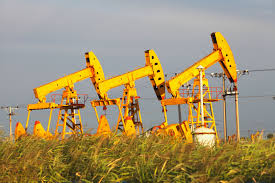New York State has officially banned the use of hydraulic fracturing to extract natural gas, citing its potential impact on health and the environment.
The state has long had a de facto ban on the practice, known as fracking, which has unlocked vast quantities of natural gas and natural gas liquids from the Marcellus and Utica shale fields in neighbouring Pennsylvania and Ohio.
In a statement released Monday, the state’s Department of Environmental Conservation spelled out a number of concerns associated with shale gas development – including the impact on ground water and surface water from leaks and spills, and air pollution from increased truck traffic.
It concluded there are “unavoidable adverse environmental impacts” and “significant uncertainty” remaining regarding the level of risk to public health that would result from permitting high-volume hydraulic fracturing in New York. And hence, Governor Andrew Cuomo officially prohibited the practice.
New York’s decision comes less than a month after the U.S. Environmental Protection Agency released a long-awaited study that found no evidence of widespread adverse effects on drinking water from fracking.
While the oil and gas industry embraced the study’s results, the federal agency hedged its findings, saying the lack of evidence did not necessarily mean an absence of risk.
The industry argues the threats to water and air can be managed through proper well construction and regulation and touts the economic boom that shale gas and oil production has brought to North America.
But environmentalists argue the benefits are not worth the potential costs.
“We salute Governor Andrew Cuomo’s refusal to bow to industry pressure,” said Deborah Goldberg, managing attorney for the environmental group Earthjustice, which had fought for the ban.
“He had the courage to do what no other state or federal leader has had the courage to do: let the available scientific evidence dictate whether fracking should proceed in New York.”
The state’s prohibition comes as Quebec and New Brunswick re-evaluate their own stand on fracking and the potential to develop their shale gas resources.
In New Brunswick, Liberal Premier Brian Gallant has appointed a three-member commission to review the safety aspects of fracking and shale gas development. Mr. Gallant said New Brunswick would only proceed after consultation with First Nations and if concerns about health and environmental effects can be addressed.
Western provinces have no such qualms. Companies are developing unconventional oil and gas reserves through the widespread use of hydraulic fracturing. British Columbia is looking to jump start an entire industry – the export of liquefied natural gas – from shale gas extraction in the northeastern corner of the province.
Source: The Globe and Mail












